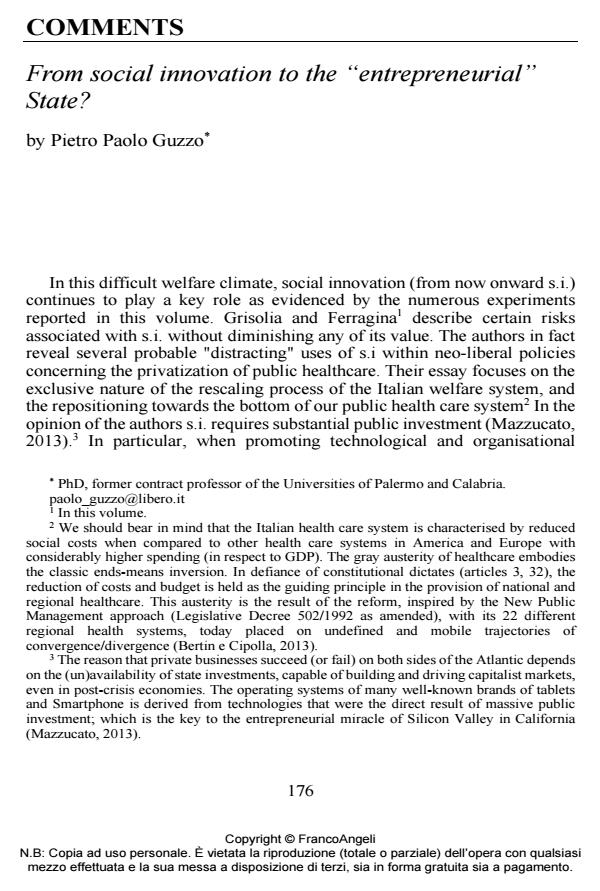From social innovation to the "entrepreneurial" State?
Titolo Rivista SALUTE E SOCIETÀ
Autori/Curatori
Anno di pubblicazione 2015 Fascicolo 2015/1EN
Lingua Inglese Numero pagine 4 P. 176-179 Dimensione file 46 KB
DOI 10.3280/SES2015-001014EN
Il DOI è il codice a barre della proprietà intellettuale: per saperne di più
clicca qui
Qui sotto puoi vedere in anteprima la prima pagina di questo articolo.
Se questo articolo ti interessa, lo puoi acquistare (e scaricare in formato pdf) seguendo le facili indicazioni per acquistare il download credit. Acquista Download Credits per scaricare questo Articolo in formato PDF

FrancoAngeli è membro della Publishers International Linking Association, Inc (PILA), associazione indipendente e non profit per facilitare (attraverso i servizi tecnologici implementati da CrossRef.org) l’accesso degli studiosi ai contenuti digitali nelle pubblicazioni professionali e scientifiche.
The "Viagra phenomenon" is the most visible expression of a global process of construction of masculinity through medicalized practices, led by an alliance of specialized physicians’ expert discourses and multinational pharmaceutical companies’ marketing strategies. In Italy, since direct-to-consumer advertising of prescription drugs is not allowed, insistent awareness campaigns have been promoted, reproducing a cultural script in which sex is recast as a core element of a healthy lifestyle: these campaigns depict male underperformances as an emerging social epidemic and invite all men to self-monitor their sexual health, living up to medically defined standards, and to ask for medical advice if they feel inadequate. The analysis of documentary material and in-depth interviews with medical experts shows how medical discourses, setting male sexual health as a new public issue, construct both the masculinity to be fixed and the new forms of medical expertise legitimized to treat it. Treatments for male sexual dysfunctions work at transmitting cultural scripts which reinforce normatively gendered expressions of sex. However, some interviewees step aside the hegemonic narrative and criticize what they consider an improper and risky overuse of quick-fix diagnostic and therapeutic solutions, bringing psychological, relational and socio-contextual dimensions back into the picture.
Parole chiave:Sexuality, masculinity, medicalization, naturalization, pharmaceuticalization, Viagra.
, From social innovation to the "entrepreneurial" State? in "SALUTE E SOCIETÀ" 1EN/2015, pp 176-179, DOI: 10.3280/SES2015-001014EN